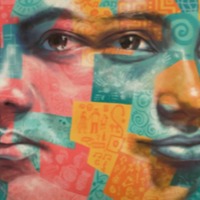
I was a slave during my entire childhood and adolescence, up until the age of about 25. I was born in 1955 in Wad Naga. I felt that religion was something that I was not a part of. I have no idea what religion is since unlike other children I never received any king of education at all. In fact, I was excluded from religion, they wanted to exclude me form religious knowledge. In sum I was marginalized. When the master of my mother died, his son, who was born in the east of Mauritania, in the Assaba region precisely, came to claim his part of the inheritance from his father. Actually, when the inheritance was divided, it was revealed that I was the only “good” that he had. He abandoned the idea to take me as a slave because he did not see the interest in having a slave. Subsequently, one of his cousins asked him to give him this slave whom he did not want. I was then sent with this new master, to whom I was a gift, to the Northern part of the country, in the Tiris region. We lived between Tiris and Inchiri. I was sent at a very young age. I never asked questions. I lived as a shepherd tending to the herd of this new master. Of course, like other slaves, I accepted my destiny internally and thought it was natural for education and religion to not be part of my world where there was only work. I was intentionally excluded form religion, I was even I intentionally excluded from the simple feeling of a familial life, and from the feeling of belonging to a family since my family ties were intentionally cut off. The filial sentiment was unknown to me because I had been cut off from it very early. I even remember that the papers that were attributed to me, as I discovered them later, contained a false birth date (1954 instead of 1955) and in the place of my mother’s first name, there was the first name of another woman, her cousin in fact. I am unable to say if this was due to a plan designed to cover up my filiations or if it was mere negligence due to a lack of interest in my family ties or in my identity as a person. Back then I had very little memory of my mother. I believe that there is a sort of sorcery that diverts us from thinking about our family and that detaches us from the feeling of belonging to a family. They did not even inform me about my mother’s death. I dreamed of it though. I cried in my sleep. The same night that she died, I dreamed that someone told me that my mother was dead. In a moment, someone raised my head and I woke up. I was dreaming that someone was telling me that my mother was dying. The next day, one of our friends who had been sent off to the city to buy some goods came back and brought some provisions. And as always, we were curious to know what the news in the big city was. We pressed him with questions. He told me: ‘Bilal, you know, your mother died’. That was indeed painful but I was somehow expecting such information. Anyway, from my childhood if there is something that I would never forgive these people for it is refusing to inform me of religion and preventing me from having access to religious education… I do not forgive them for having preventing me from any access to religious life. I will never forgive them for that.
We continued our nomadic and pastoral life between Inchiri and the north of the country. I was with the hers. The 1973 brought was very strong and the animals were tired. I brought them to their owners, my masters, in Inchiri. The herds had been struggling; the animals were tired, some were sick and starved. Pastures were rare. I returned to Inchiri but I did not even think to see my family. Finally, I was sent to my home in the south-west, to Wad Naga… It is like this that I rediscovered my family… my masters no long needed me, I stayed with them a short while, after that they told me to leave….
My father was not a slave, but his six children were considered slaves because their mother was. He had done what he could to keep those of us who had succeeded in returning home. He had paid to purchase our freedom; he financially compensated the masters so that they did not take us from him again. For my part, I refused to leave when my so-called masters came over in order to bring me back to slavery. I resisted fiercely and threatened the man who tried to bring me back to work for him…
As told to a researcher for CODESRIA (Council for the Development of Social Science Research in Africa) ‘Former Slaves Becoming Imams Citizenship, Islam and Ethnicity in Contemporary Mauritania









